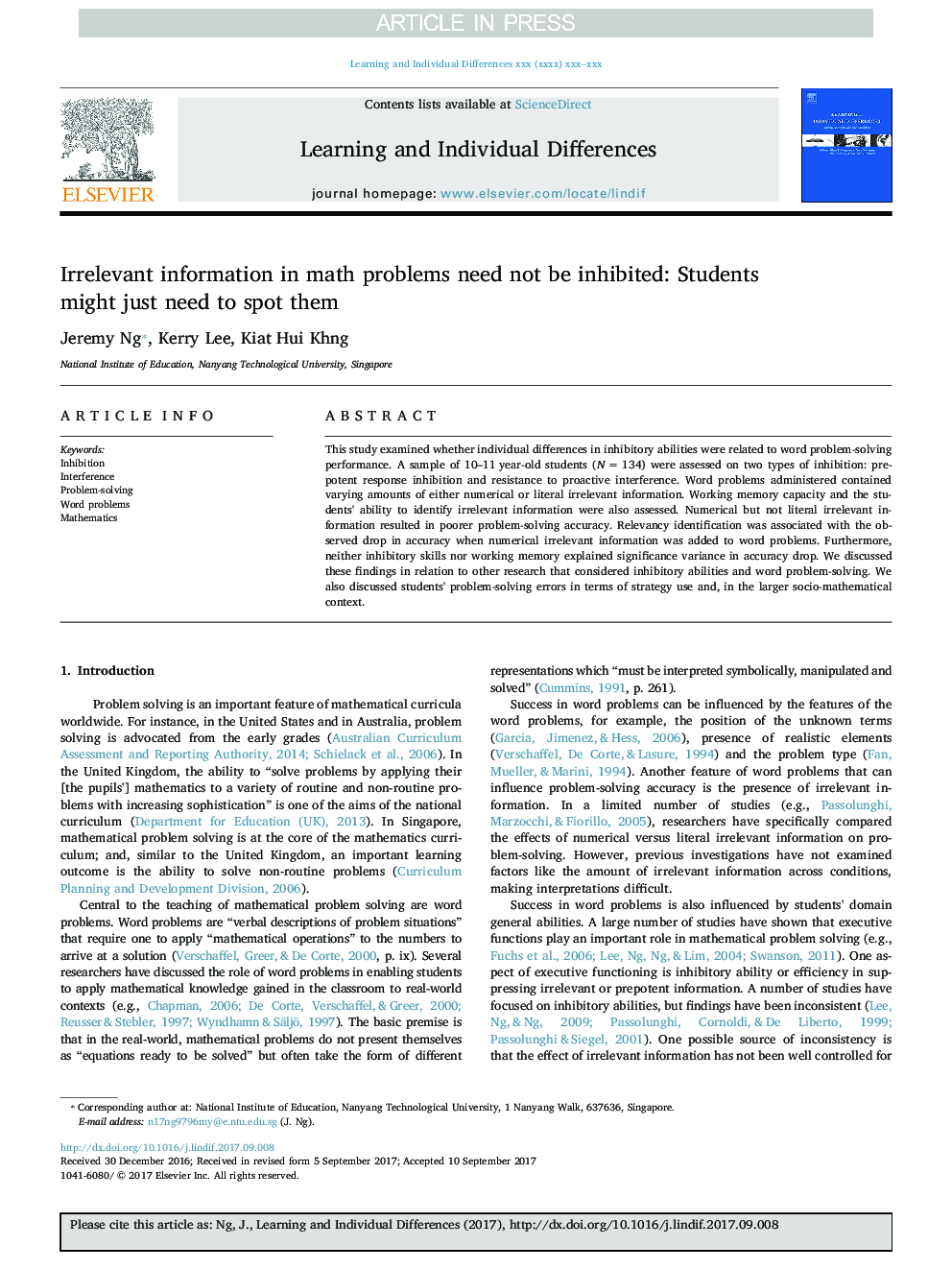| Article ID | Journal | Published Year | Pages | File Type |
|---|---|---|---|---|
| 6844578 | Learning and Individual Differences | 2017 | 10 Pages |
Abstract
This study examined whether individual differences in inhibitory abilities were related to word problem-solving performance. A sample of 10-11Â year-old students (NÂ =Â 134) were assessed on two types of inhibition: prepotent response inhibition and resistance to proactive interference. Word problems administered contained varying amounts of either numerical or literal irrelevant information. Working memory capacity and the students' ability to identify irrelevant information were also assessed. Numerical but not literal irrelevant information resulted in poorer problem-solving accuracy. Relevancy identification was associated with the observed drop in accuracy when numerical irrelevant information was added to word problems. Furthermore, neither inhibitory skills nor working memory explained significance variance in accuracy drop. We discussed these findings in relation to other research that considered inhibitory abilities and word problem-solving. We also discussed students' problem-solving errors in terms of strategy use and, in the larger socio-mathematical context.
Related Topics
Social Sciences and Humanities
Psychology
Developmental and Educational Psychology
Authors
Jeremy Ng, Kerry Lee, Kiat Hui Khng,
